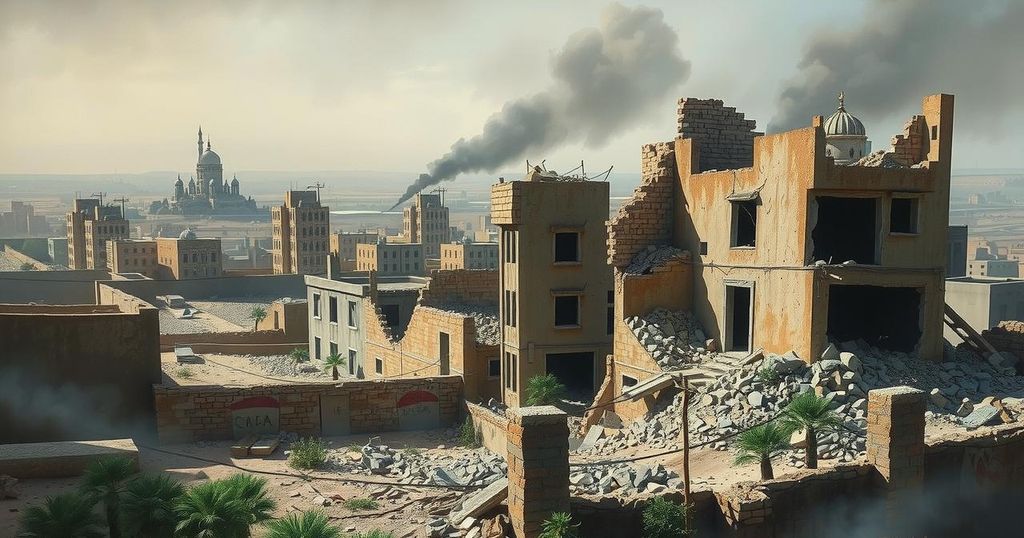Gazans Reject Displacement Plan Amid Ongoing Conflict and Destruction

- Gazans firmly reject Trump’s displacement plan amidst ongoing conflict.
- Mansour Abu Al-Khaier emphasizes their attachment to the land.
- Netanyahu reassures that people can choose to stay or leave.
- The ICRC reports spikes in deaths related to aid distribution violence.
- Health system in Gaza is overwhelmed by increasing casualties.
Gaza Residents Resisting Displacement Plans Amidst War Woes
The ongoing situation in Gaza has become an alarming reflection of the catastrophic consequences of nearly two years of relentless conflict. As Mansour Abu Al-Khaier observes the devastation around him, his sentiments echo those of many residents: rejection of any plans that suggest displacing them from their homeland. Al-Khaier, a technician who has witnessed the toll of war, expressed a profound attachment to the land, asserting, “This is our land. Who would we leave it to, where would we go?” His perspective highlights a broader resistance prevailing among Gazans amidst a backdrop marked by violence, death, and unrelenting hardship.
Trump and Netanyahu Revive Controversial Displacement Discussion
During a recent press event at the White House, President Trump and Prime Minister Benjamin Netanyahu revived discussions on a contentious initiative aimed at relocating Palestinians from Gaza. This initiative, which has drawn widespread condemnation from Palestinians and human rights advocates, was couched in promises of a “better future” for Palestinians. Netanyahu, while talking about freedoms, stated, “You know if people want to stay, they can stay. But if they want to leave, they should be able to leave,” neglecting the implications such a plan has on generations of displaced families. The responses from neighboring nations like Jordan and Egypt, who have firmly rejected the notion of harboring Palestinian refugees, further amplify the hopelessness felt by Gazans regarding their future.
Hospitals Overwhelmed Amid Escalating Violence and Misery
The International Committee of the Red Cross (ICRC) recently spotlighted the ongoing crisis, revealing a surge in casualties linked to heightened violence around aid distribution sites. Reports indicate that the health care system in Gaza is struggling under the weight of increasing demands. Since the launch of new aid sites in late May, the ICRC has seen an unprecedented influx of patients – with their field hospital recording over 200 deaths and treating thousands of weapon-related injuries. This alarming trend only serves to exacerbate the already grim conditions in this densely populated enclave and reflects the dire humanitarian situation that persists amidst political maneuvering.
In summary, the rejection of Trump’s displacement proposal highlights a deep-seated connection that Gazans have to their homeland, despite the immense suffering they have faced. Both the political discussions surrounding the relocation of Palestinians and the increasing humanitarian crisis are ultimately intertwining, as Gaza’s residents continue to find hope and resilience amidst destruction. Efforts by international organizations, like the ICRC, underline the pressing need for humanitarian support as the area grapples with ongoing violence and instability.








